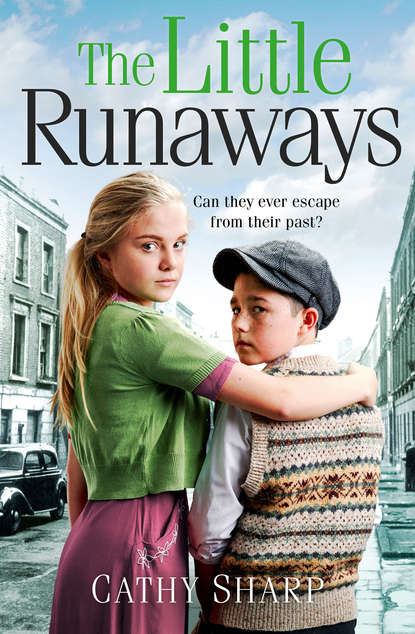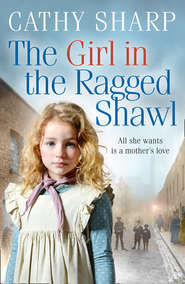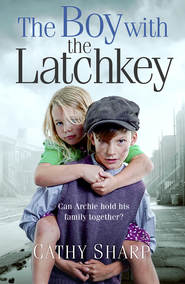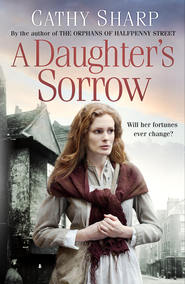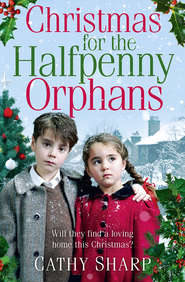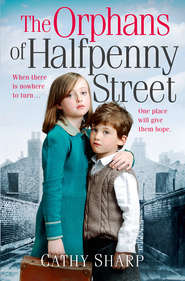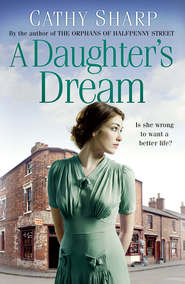По всем вопросам обращайтесь на: info@litportal.ru
(©) 2003-2024.
✖
The Little Runaways
Настройки чтения
Размер шрифта
Высота строк
Поля
Chapter Twenty-Seven
Chapter Twenty-Eight
Chapter Twenty-Nine
Chapter Thirty
Chapter Thirty-One
Chapter Thirty-Two
Chapter Thirty-Three
Chapter Thirty-Four
Chapter Thirty-Five
Chapter Thirty-Six
Chapter Thirty-Seven
Chapter Thirty-Eight
Chapter Thirty-Nine
Chapter Forty
Chapter Forty-One
Chapter Forty-Two
Chapter Forty-Three
Chapter Forty-Four
Chapter Forty-Five
Chapter Forty-Six
Chapter Forty-Seven
Chapter Forty-Eight
Chapter Forty-Nine
Chapter Fifty
Chapter Fifty-One
Chapter Fifty-Two
Chapter Fifty-Three
Chapter Fifty-Four
Chapter Fifty-Five
Chapter Fifty-Six
Chapter Fifty-Seven
Chapter Fifty-Eight
Chapter Fifty-Nine
Extract from The Christmas Orphans
About the Author
Also by Cathy Sharp
About the Publisher
ONE (#ub6fed859-b392-5ea2-a0e2-592e1f5e732d)
Nancy stared out of the kitchen window at the piles of rubble across the street, where six houses had once stood. The space was due to be developed soon, and weeds grew between the cracks in the concrete, giving it a desolate air that echoed the feeling in her young heart. Every one of those terraced houses had been bombed during the terrible Blitz that had decimated the area round her home. Poplar and Bethnal Green had caught it as much as anywhere, because of their close proximity to the Docks. Other people said it was a miracle that the houses this side of the street had escaped the bombs, but Nancy wished that hers had been demolished that same night. Perhaps then she wouldn’t be here, living in fear and misery, waiting for Pa to return from his job in the machinery works down by the Docks.
It was the 23rd of December 1947. Soon it would be the special, holy day that families looked forward to spending together – not that it would make any difference in this house. Nancy knew she would receive no presents from her parents and the only small gift her brother had was the colouring book and crayons she’d bought with what she’d taken from the housekeeping pot. Nancy felt no guilt for spending the few pennies on a gift and some sweets. If she hadn’t walked all over the market to save money buying their Christmas dinner of scrag end of lamb, which she’d make into a tasty casserole with carrots, onions and potatoes, there would have been nothing left – and if she hadn’t spent it on Terry, her mother would have taken it for drink.
Tears stung her eyes but she rubbed them away with the backs of her hands, which were red and stung from the soda she’d put in the water to soak Terry’s sheets. He’d wet the bed again and if Pa came home and smelled stale urine he’d belt Terry, Ma and her – no, he’d reserve a different kind of punishment for her; one that turned her stomach sour and made her burn with resentment. What Pa did to her wasn’t right, for all he claimed it was his due for feeding and housing them all.
‘Any other man would put that useless slut out on the street and her brats with her. Think yourself lucky that I let you stay, and that idiot brother of yours,’ Pa had sneered when Nancy protested at his behaviour the previous night.
‘Terry isn’t an idiot.’ Nancy defended her brother fiercely. ‘He might be a bit odd sometimes, but he can’t help that …’
Pa leaned in close so that she caught the stink of beer on his breath. ‘You listen to me, and listen good, girl. Breathe a word of what goes on to anyone outside this house and I’ll have him put away somewhere he’ll never see the light of day again.’
His threats terrified Nancy, because she knew he didn’t care for any of them, not even his wife. She glanced across the kitchen to where her mother sat nursing a bottle of beer, clutching it to her as if it was her very existence, her lifeless hair hanging about her face in greasy strands and her eyes dead as they stared into nothingness. She’d been like this since the night of that terrible raid when the Blitz was at its height during December 1940 – the night they’d lost all their family and friends.
Nancy shivered as she recalled how they’d hurried through the dark streets, the sound of the sirens already loud, fleeing for the shelter. The drone of the planes heading up the river was terrifyingly near. Ma was carrying Terry, who was not yet four, and Nancy was running to keep up with her, Bear clutched to her chest and a bag with a flask and sandwiches over her shoulder.
‘Hurry up, Nance. If they start droppin’ them bloody bombs we’ll be caught like rats in a trap.’
Nancy had run and run until her chest hurt, hurtling into the shelter after all the other frightened people, and almost tumbling down the last of the steep stone steps. She and Ma had huddled together as the raid went on for what seemed like hours, Terry whimpering and grizzling, even though she’d remembered to bring Bear, the much-loved teddy that had once been hers. She’d given him a drop of sweet tea in his bottle and he’d quietened, holding his chubby arms out to her.
‘Nance cuddle,’ he’d said, and she’d taken him in her arms, crooning a nursery rhyme softly against his ear as she waited for the all clear.
It had been morning before they were finally allowed to go home … and when they did everything had changed. The sound of fire engines and ambulances screaming through the streets assaulted their ears, and the sky was red, flames still shooting skyward. When they approached their home, where two rows of terraced houses had stood facing each other across a narrow lane, only one row still remained intact. All the others had been damaged in some way or other, and the three opposite that had housed Gran and Grandda, Auntie Freda and Uncle Jim and their two young sons, and Auntie Molly were gone, nothing left but a pile of rubble. Smoke was still drifting from the blackened heap into the sky, though the firemen had put out the flames.





